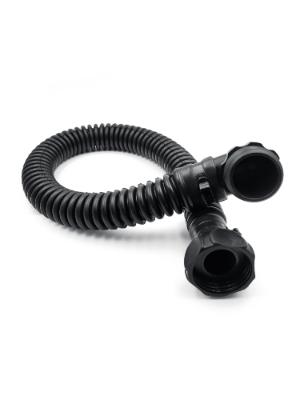The Risks of Purchasing a Surplus Gas Mask
The Disadvantages of Purchasing a Surplus Gas Mask
Introduction:
Gas masks have grown in popularity among those seeking personal protection in emergency scenarios in an era where safety and readiness are key. However, it is vital to be aware of the potential drawbacks of obtaining surplus gas masks, especially those from unknown sources, as they may offer major risks during critical scenarios. In this blog, we will look at some of the variables that make purchasing extra gas masks a risky proposition, highlighting the need of buying from reliable providers.
1. ambiguity about Product Quality: One of the primary worries when obtaining excess gas masks is the ambiguity about their quality. These masks could have been made decades ago, making it difficult to determine their current condition. Filters and other components' efficacy may decline over time, rendering the gas mask useless in providing adequate protection against CBRN (Chemical, Biological, Radiological, Nuclear) hazards. Without adequate testing and certification, the user may unintentionally put oneself in danger.
2. Lack of manufacture Date Information: Another key disadvantage of purchasing leftover gas masks is the lack of manufacture date information. Without this vital piece of information, determining the age of the mask and its estimated lifespan becomes difficult. As a result, the user may inadvertently rely on a gas mask that has past its approved usage duration, jeopardizing their safety even further in an emergency.
3. Storage circumstances: Surplus gas masks frequently lack sufficient paperwork detailing their storage circumstances over the years. Excessive heat, humidity, or other adverse climatic variables might compromise the integrity of the mask's materials, such as rubber seals, valves, and straps. A faulty gas mask may fail to form an airtight seal, enabling hazardous chemicals to enter and jeopardize the wearer's health. The lack of information concerning the storage circumstances makes determining the mask's dependability extremely impossible.
4. Risk in an Emergency: When it comes to human safety during emergencies, the dependability of protective gear is critical. Using a surplus gas mask from an unknown source raises the danger of failing when it counts the most. Every second counts in a CBRN emergency, and any delay or inefficiency in protection might have serious implications. Purchasing a gas mask from a reputable source who adheres to high quality control requirements means that the user can rely on the equipment to function properly in critical situations.
Conclusion: While acquiring a surplus gas mask may appear enticing owing to potential cost savings, it is critical to consider the risks associated. The uncertainty about product quality, the absence of manufacture date information, the unknown storage conditions, and the increased risk during emergencies are all important downsides of purchasing surplus gas masks. Purchase gas masks from trusted providers who supply reliable, up-to-date items to ensure personal safety and protection. Remember that compromising on quality in terms of personal safety can have serious effects, therefore it's always best to invest carefully in trusted and certified equipment.
Introduction:
Gas masks have grown in popularity among those seeking personal protection in emergency scenarios in an era where safety and readiness are key. However, it is vital to be aware of the potential drawbacks of obtaining surplus gas masks, especially those from unknown sources, as they may offer major risks during critical scenarios. In this blog, we will look at some of the variables that make purchasing extra gas masks a risky proposition, highlighting the need of buying from reliable providers.
1. ambiguity about Product Quality: One of the primary worries when obtaining excess gas masks is the ambiguity about their quality. These masks could have been made decades ago, making it difficult to determine their current condition. Filters and other components' efficacy may decline over time, rendering the gas mask useless in providing adequate protection against CBRN (Chemical, Biological, Radiological, Nuclear) hazards. Without adequate testing and certification, the user may unintentionally put oneself in danger.
2. Lack of manufacture Date Information: Another key disadvantage of purchasing leftover gas masks is the lack of manufacture date information. Without this vital piece of information, determining the age of the mask and its estimated lifespan becomes difficult. As a result, the user may inadvertently rely on a gas mask that has past its approved usage duration, jeopardizing their safety even further in an emergency.
3. Storage circumstances: Surplus gas masks frequently lack sufficient paperwork detailing their storage circumstances over the years. Excessive heat, humidity, or other adverse climatic variables might compromise the integrity of the mask's materials, such as rubber seals, valves, and straps. A faulty gas mask may fail to form an airtight seal, enabling hazardous chemicals to enter and jeopardize the wearer's health. The lack of information concerning the storage circumstances makes determining the mask's dependability extremely impossible.
4. Risk in an Emergency: When it comes to human safety during emergencies, the dependability of protective gear is critical. Using a surplus gas mask from an unknown source raises the danger of failing when it counts the most. Every second counts in a CBRN emergency, and any delay or inefficiency in protection might have serious implications. Purchasing a gas mask from a reputable source who adheres to high quality control requirements means that the user can rely on the equipment to function properly in critical situations.
Conclusion: While acquiring a surplus gas mask may appear enticing owing to potential cost savings, it is critical to consider the risks associated. The uncertainty about product quality, the absence of manufacture date information, the unknown storage conditions, and the increased risk during emergencies are all important downsides of purchasing surplus gas masks. Purchase gas masks from trusted providers who supply reliable, up-to-date items to ensure personal safety and protection. Remember that compromising on quality in terms of personal safety can have serious effects, therefore it's always best to invest carefully in trusted and certified equipment.


